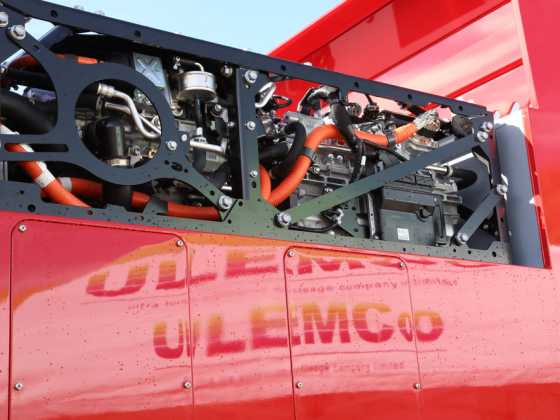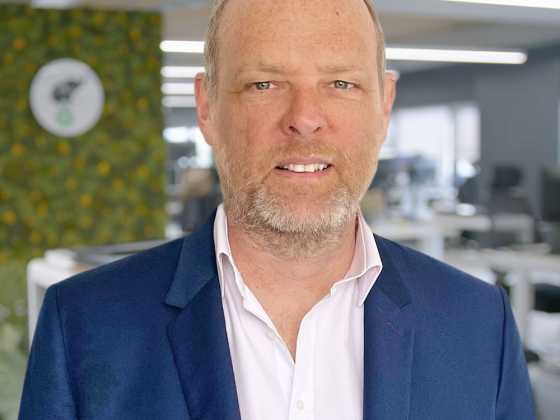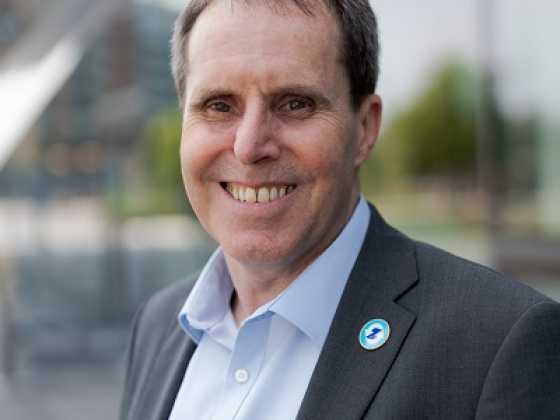Decarbonising small businesses and sole traders

For many small business owners, their livelihood is dependent on their cars or vans. But with the current cost-of-doing business crisis, small business owners and the self-employed increasingly find themselves lacking the cash needed to switch to electric vehicles. Martin McTague, national chair of the Federation of Small Businesses, shares the challenges to overcome for SMEs
Setting up and running a small business requires entrepreneurs to think outside the box, take on new challenges, and resolve fundamental challenges facing their customers and wider society. Whilst small businesses have been asked to tackle a number of such challenges over the decades, perhaps none are as globally threatening than the impact of climate change.
In the UK, transport is the single biggest contributor this crisis, accounting for just under a third of all greenhouse emissions. Efforts to encourage drivers to opt for zero emission vehicles are growing as the country moves towards its net zero targets by 2050. But have small business owners and sole traders been left behind, despite their crucial role on this journey?
Recent research by Federation of Small Businesses (FSB) shows a majority of small firms believe the planet is facing a climate crisis, and a third have already taken steps to decarbonise.
Small businesses understand making the switch to cleaner vehicles will help them pick up the speed on net zero transition. But many say the cost of electric vehicles (EVs), the lack of a second-hand market and fragmented charging infrastructure in rural areas are holding them back from reaching this important landmark.
A jump start
For many small business owners, their livelihood is dependent on their cars or vans. But with the current cost of doing business crisis, small business owners and the self-employed increasingly find themselves lacking the cash needed to switch their work vehicles to electric: almost half (46 per cent) say cost is a barrier to adoption.
Under the current operation of the Clean Air and Low Emission Zones, the danger of a two-tier society emerges, where those that have made the switch exempt from clear air charges, whilst those who cannot afford an EV to pay penalties.
Handing the zone charges back to those in need in the form of grants will help change the course. This could be distributed through a comprehensive scrappage scheme under which smaller businesses and sole traders could replace diesel or petrol commercial vehicles with cleaner hybrids or zero emissions vehicles, with the support of the grants.
Such a scheme will not only give under-resourced small firms a jump start to make the switch but also help form a developed second-hand EV market to keep costs within a reasonable range, which is vital to transition to the 2030 ban that takes effect in less than a decade.
Charge up
Behind the challenge of funding lies another: more than a third of small businesses attribute the lack of charge points as a key factor putting the brakes on EV adoption. In rural areas, that figure rises to four in ten.
To talk about EV uptake without considering the charging infrastructure is like putting the cart before the horse. Small businesses and sole traders are reliant on public charge points because not everyone will be able to install one at their sites. For those who rent their premises, many say landlords won’t approve charge point installation. In other cases, the prohibitive cost of power supply upgrades is holding back businesses.
As part of its Powering Up Britain Strategy, the Government has announced more than £350 million further investment in EV charging infrastructure, backing up its plan to build a network of 300,000 chargers in the UK by 2030. While this is a welcome move, it’s vital that charge points are spread out across the country, and that the rural economies are not left behind.
As things stand, charge points are concentrated around the major road network. Quite logical, you may think, except that the small firms that make-up 99 per cent of the private sector often travel on local roads.
In addition, in more remote and sparsely populated rural areas where it is unlikely that public transport will ever be a viable option for connectivity, cars, and soon ZEVs specifically, will be the only way to move goods and access people.
Think about the remote artisan, food and hospitality business in the countryside, failing to reach customers and delivery their goods and services because those who’ve made the ZEV switch feel they can’t reach them – the B&B sent to the wall because they can’t install a charge point, and there isn’t a public one near them.
A member recently highlighted that “unless you invest in a charging point yourself, the currently insufficient infrastructure will become a limiting factor impacting your business in the near future.”
Another business highlighted that even if a few chargepoints are available, those are either broken or occupied day in and day out by the same vehicles.
The government must therefore treat the local roads network with the same priority as motorways and major A roads, future proofing the rural economies on which millions of livelihoods depend. With the UK Government’s plans to introduce the ZEV mandate, those barriers need to be addressed – otherwise businesses will be left stranded and disconnected from the new infrastructure network. The UK’s recently launched Local EV Infrastructure Fund will play a key role in delivering on this.
Help to Green
The EV transition also highlights the need for greater energy security. Over the winter, small businesses battled through an unprecedent energy crisis. As higher wholesale gas prices have driven up electricity prices, charging an EV became dearer.
FSB has long lobbied for greater energy security. Our Help To Green proposals, comprising a voucher programme to financially support small businesses to invest in energy efficiency measures or micro-generation and a SME energy advice service, are backed by a dozen trade associations and adopted as one of former energy minister Chris Skidmore’s recommendations in his Review of Net Zero.
The proposals have also been taken forward by the government as part of its Powering Up Britain Strategy, in the form of the SME energy advice service alongside and energy audit and grant pilot scheme.
We hope to see this government initiative scaled up to a full national scheme that can help every small business wanting to invest in green measures, be it adopting an EV or better insulating their premises, that will support the move to net zero.
March saw the biggest EV sales in history, accounting for more than one in three new registrations that month. It is tempting to believe that the EV transition is as simple as boosting sales. But the road to clean vehicles and net zero also extends to the matter of infrastructure, the need for drivers with knowledge of electric work vehicles, the importance of R&D investments, and most importantly, the need for a long-term energy security strategy.
Fundamentally, small business owners and sole traders – accounting for 99 per cent of the overall business population – are in the driver’s seat on the journey to net zero, and the UK-wide ZEVs can’t happen without them. Whilst there are measures out there to help us, such as tax reliefs, congestion charge exemptions and capital allowances, we need to see policymakers go much further to leave no drivers behind.






